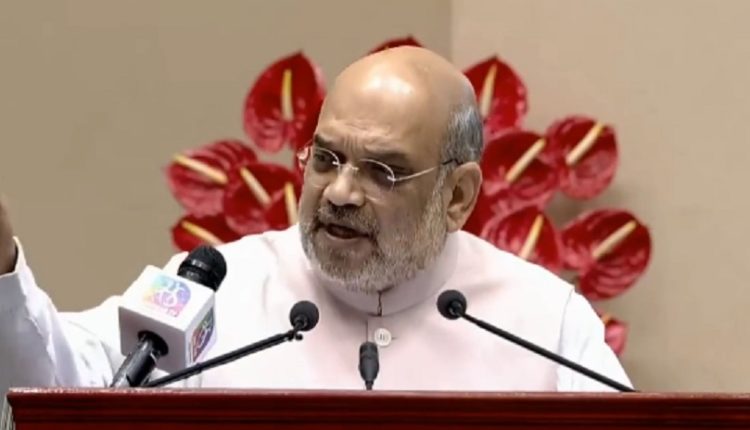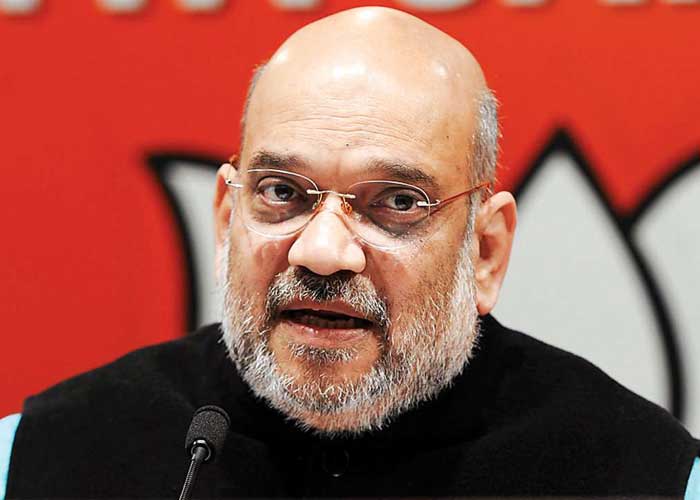Last week, people in Jammu and Kashmir welcomed Union Home Minister Amit Shah with wide arms as he landed there with panache. Undoubtedly, given the security situation, this was one of the most successful visits to Jammu and Kashmir by any Union minister.
We must be aware of how, in 2013, the night before Prime Minister Manmohan Singh’s visit to the Valley, 13 people were assassinated. Such murders were an indicator of the populace’s discontent as they sought to send a message to the world that Indian officials were not welcome in their country.
This time, however, no more killings of civilians or members of the security forces were recorded during Amit Shah’s visithttps://www.moneycontrol.com, with the exception of the strange murder of the director general of prisons in Jammu in what appeared to be a home disagreement between an employer and his housekeeper.
Overall, security forces performed admirably, and the people showed little interest in protesting this visit, in contrast to how they had previously resisted or ignored visits from other Indian Union ministers.
Having said that, let’s examine how this visit was viewed practically as a whole.
One of the arguments made by the opposition is that “ST status to Paharis is a distant dream — a mirage — a hollow promise like all other declarations by BJP.”
Additionally, they said that the revelation of Paharis’ ST designation was made with an ulterior motive in mind in order to stoke tensions between the amiably coexisting Pahari and former ST groups and to split the Valley’s Muslims.
The final claim is that giving ST status to Paharis is really a ruse to win over Pahari supporters.
Let’s now evaluate whether any of these hold any merit.
The “illusion” theory is based on the observation that few jobs have actually been created despite promises of 7 lakh jobs following the former state’s conversion to a Union Territory. The overemphasis on security-based measures brought in a tonne of tourists, but the credit for the resulting tourism revenue belongs more to the security forces and Kashmir’s own natural beauty than to the BJP.
The majority of infrastructure projects now employ professionals on-site who are not from the UT. In fact, many of the positions that were open before to Article 370’s repeal are still without monthly pay.
Most decisions made by the Centre are in a condition of executional limbo due to corruption and the continued presence of biassed anti-India personnel who have been in positions of power since the Hurriyat days.
Not to mention the effects of the Covid-19 outbreak, from which the economy is still attempting to recover.

However, the opposition, in line with its most natural inclination, will not pause to contemplate the limitations faced by the BJP and will undoubtedly portray the BJP as having simply made yet another empty promise that will never come to pass in the eyes of the Kashmiri people.
The next major claim is that this is a cunning plan to split the Valley’s Muslim population. The overuse of the Hindutva narrative against India on a global scale, which has even made its way into the naïve, malleable brains of some Muslims in India, is working as a catalyst for this thesis.
The Opposition, which is attempting to defend the insecure community, makes the basic point that the Gujjars and Bakarwals of the Valley, for whom the contentious ST category and its perks were reserved, would now clash with the Pahari group due to unwelcome competition. India’s unregularized democracy has never enabled competition to flourish throughout its history, and the country has always attracted political support by playing the ace card of reservation. Because of this, I, a straightforward Indian Kashmiri Nationalist who falls under the “bhakt” category and who supports Amit Shah and his strict views, am a little dubious about this choice made by my hero.
Why should there be a reservation for a group of highly educated individuals who occupy respectable employment in UT urban areas? Why not develop the border regions where they live if the uplift of rural Paharis was the problem? A Geographical Indication (GI) label for the only consumable produce in their region—the gucchi mushroom—will make them successful agro-based entrepreneurs similar to their counterparts in South Kashmir—the apple traders. Good roads will increase their trade prospects. Skills training centres will make them effective and self-sufficient.
But it was extremely sad that Amit Shah, too, used the antiquated reservation strategy to win over the public’s favour, as opposed to picking the more difficult option — his natural style of leadership. And finally, the opposition claims that Amit Shah and his party are not doing this out of concern for the Pahari people but rather to win their support. This is a miss, I’m afraid!
In conclusion, Amit Shah continues to be the hero, using an iron fist to punish traitors and a loving hand to embrace everyone who loves India. However, he missed a significant opportunity to truly empower the India-loving Pahari community, which has low expectations but deserves much better than what it is currently receiving.

Read more : Amit Shah’s first public rally in Kashmir after article 370











